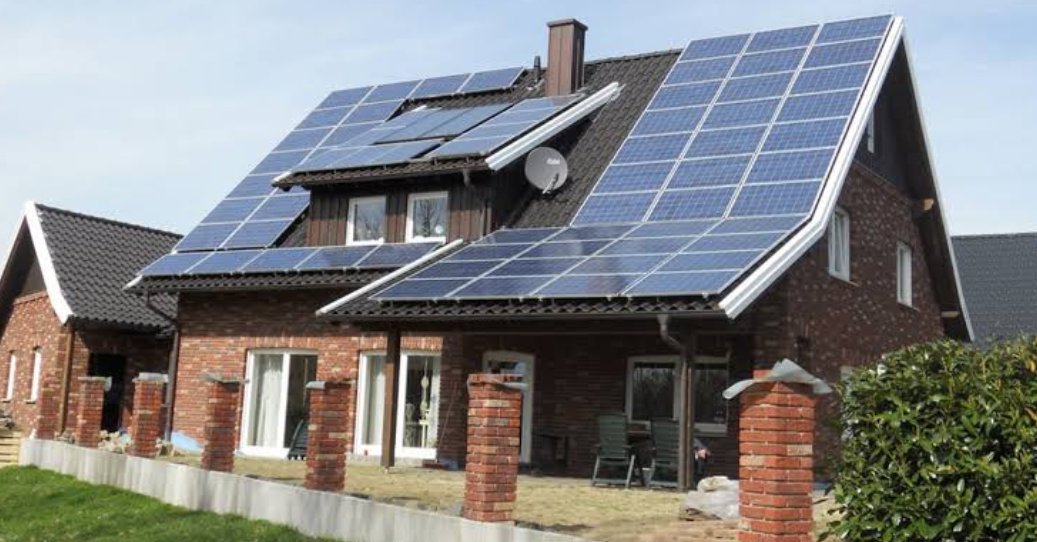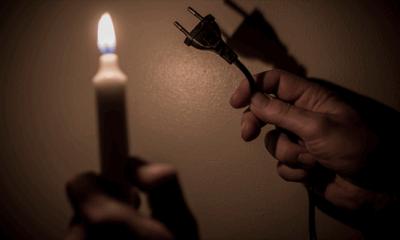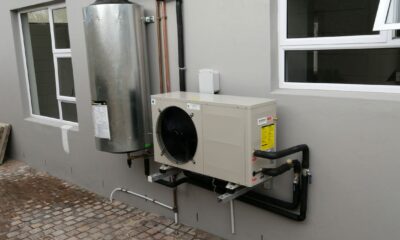News
‘Solar Saved My Mom’s Life’: How Pay-As-You-Go Power is Changing Lives in South Africa

Reliable electricity is no longer just a convenience. For some, it’s the difference between life and death.
A Son’s Desperation Sparks a Solar Lifeline
For Mark Moodley from Benoni, on Gauteng’s East Rand, electricity isn’t just about keeping the lights on, it’s about keeping his 81-year-old mother alive. After spending weeks in ICU, she returned home dependent on an oxygen concentrator. But in a country plagued by daily power cuts, that wasn’t something he could rely on.
“There were days with no power for six hours. I used a car battery just to keep her oxygen running,” Moodley says. “When that didn’t work, I’d have to lift her arms and hope she could breathe or rush her back to hospital.”
Those nights, he barely slept. Then came the breakthrough: an affordable solar power system he could pay for monthly, through a startup called Wetility. Now, he says, “It’s been a lifesaver. I don’t have to panic when the lights go out. I know she’s safe.”
From Crisis to Consistency: Solar Brings Relief to the Vulnerable
For nearly 15 years, load-shedding, intentional power cuts to ease pressure on South Africa’s crumbling electricity grid has upended daily life. From medical emergencies to lost business, unreliable power has become a national frustration and, in some cases, a death sentence.
South Africa generates about 80% of its electricity from coal, and while efforts to shift to renewable energy are underway, the pace is slow. Meanwhile, those who can afford it are going off-grid with costly solar systems. But what about everyone else?
That’s where Wetility steps in. Founded in 2019 by Vincent Maposa, a former energy analyst, the startup is rewriting the solar playbook by offering pay-as-you-go solar systems, starting from around $60 (R1,100) a month—with no huge upfront cost.
Solar Made Simple and Secure for Townships
Installing solar panels in townships comes with its own challenges. Fragile roofs, high crime, and theft concerns have made many residents hesitate. Wetility tackled these issues with thin-film solar panels that stick directly to rooftops. If tampered with, they become useless. The system’s inverter and battery are locked in a 300kg steel box bolted to the wall.
“We designed everything for South African realities,” says Maposa. “You can’t just import a European model and expect it to work in Soweto or Benoni.”
A Grocery Store’s Revival in Krugersdorp
For Julius Koobetseng, the owner of a small grocery store in Krugersdorp, solar wasn’t just a smart upgrade, it was a business-saving decision. “Meat would spoil, milk would go bad. Sometimes we’d go four days with no power,” he says, stacking tins in a newly buzzing fridge.
He couldn’t afford a big generator or unpredictable fuel prices. Wetility’s solar setup gave him not only electricity but something just as valuable: predictability.
“It costs about $250 a month, but I don’t lose stock anymore. And customers come here even during outages, just to charge phones, or buy cold drinks. Business has picked up.”
The Bigger Picture: Reclaiming Power, Literally and Figuratively
South Africa’s energy crisis has become more than a technical problem; it’s a symbol of broader systemic failure. But amidst the frustration, solar innovation is offering a grassroots solution and a form of dignity.
As Maposa puts it, “Access to electricity means nothing if it’s unreliable. We wanted to build something for the people who’ve been left behind.”
And clearly, that’s what they’ve done. For families like the Moodleys and shopkeepers like Koobetseng, solar isn’t just about savings. It’s about survival, consistency, and peace of mind.
Social Media Buzz: Hope Shines Through
Online, stories like Moodley’s have struck a chord. X (formerly Twitter) users praised the initiative:
-
“This is what true innovation looks like, solving local problems with local ideas.”
-
“It’s crazy that something as basic as reliable electricity is still a dream for so many.”
-
“We need Wetility in every township.”
What’s Next for Solar in SA?
While grid improvements are promised, everyday South Africans are taking energy into their own hands. As Wetility continues to scale, it signals a broader trend, decentralised, community-appropriate energy solutions are no longer futuristic. They’re here, and they’re helping people breathe easier, quite literally.
{Source: BBC}
Follow Joburg ETC on Facebook, Twitter , TikTok and Instagram
For more News in Johannesburg, visit joburgetc.com



























